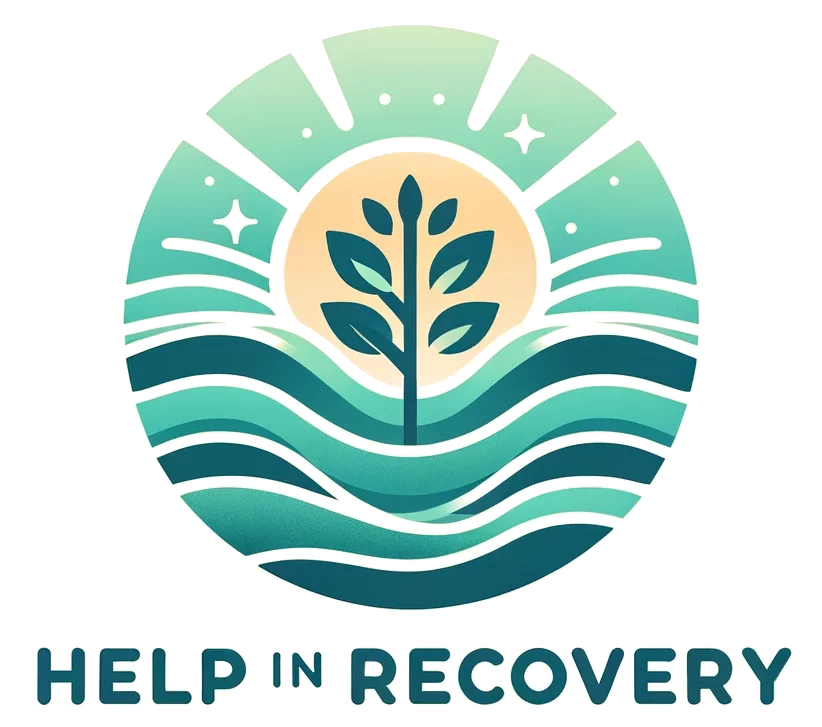The Crucial Role of a Recovery Coach in Addiction Recovery
Introduction
The Journey Towards Recovery: Navigating the Waters with a Recovery Coach
In the challenging voyage towards sobriety and wellness, the guidance of a seasoned navigator is invaluable. This navigator, known as a recovery coach, plays a pivotal role in steering individuals away from the tumultuous seas of addiction towards the shores of health and recovery. Their role transcends mere guidance; they are the mentors who light the path, the motivators who inspire action, and the anchors who provide stability in the unpredictable recovery journey.
The journey of overcoming addiction is complex and multifaceted, demanding more than just willpower and good intentions. It requires a comprehensive approach that addresses the physical, emotional, and psychological aspects of healing. This is where the role of a recovery coach becomes indispensable. They offer more than just advice; they provide a tailored, empathetic approach to each individual’s journey, ensuring that the path to recovery is not just traversed but transformed into a journey of personal growth and discovery.
In this article, we delve deeper into the crucial role of a recovery coach in addiction recovery. From being facilitators of change to being bridges to vital resources and promoters of a holistic lifestyle, we explore the many hats a recovery coach wears and their profound impact on individuals seeking a new lease on life post-addiction.
Understanding the Multidimensional Role of a Recovery Coach
Facilitator of Change
Recovery coaches are instrumental in guiding clients through the intricate process of change, particularly in the challenging realm of addiction recovery. Their role is pivotal in helping individuals transition from a state of contemplation to one of decisive action and sustained recovery. They employ various strategies, from motivational interviewing to personalised support, to empower their clients. Building a trusting relationship creates a safe space where clients can openly discuss their fears, hopes, and challenges.
Helping clients recognise their potential for transformation is crucial to facilitating change. Coaches work to break down the journey into manageable steps, ensuring each milestone is realistic and achievable. They also assist in identifying and overcoming barriers that might impede progress, such as negative thought patterns or unhealthy environments.
Bridge to Resources
As a bridge to vital resources, recovery coaches possess an extensive knowledge of the support systems available. They connect clients with resources essential for recovery, including support groups, healthcare providers, and educational materials. These resources are tailored to the individual’s needs, ensuring each receives the most relevant and practical support.
In many cases, recovery coaches also help navigate the complexities of accessing these resources. They may assist with logistical aspects such as making appointments, understanding treatment options, or even providing transportation to meetings or therapy sessions. This support is crucial in removing obstacles hindering a client’s progress.
Promoter of Sobriety and Wellness
The role of a recovery coach extends beyond addressing addiction alone; they also promote a holistic approach to wellness. This includes advocating for a lifestyle that supports sobriety, physical health, mental wellbeing, and emotional balance. Coaches encourage clients to adopt healthy habits like regular exercise, balanced nutrition, and mindfulness practices.
They also guide managing stress, developing healthy relationships, and building a supportive social network. This holistic approach ensures that clients are not just recovering from addiction but also moving towards a more fulfilling and balanced life.
Impact of Holistic Wellness
The impact of this holistic approach can be profound. Clients who embrace a lifestyle that supports their overall wellbeing often find that they are better equipped to handle the challenges of recovery. They develop resilience, self-esteem, and a sense of purpose that extends beyond their addiction. Recovery coaches play a critical role in guiding clients towards this comprehensive form of wellness, which is essential for long-term success in recovery.
Case Study: A Holistic Transformation
To illustrate the impact of a recovery coach’s role in promoting wellness, consider the case of John (name changed for privacy). John struggled with alcohol addiction for several years and found it challenging to maintain sobriety. With the help of his recovery coach, he not only worked on overcoming his addiction but also adopted a healthier lifestyle. His coach introduced him to a local running group, which improved his physical health and helped him build a supportive community. This holistic approach played a significant role in John’s successful recovery journey.
Key Responsibilities of a Recovery Coach
Goal Setting and Planning
One of the primary responsibilities of a recovery coach is to assist clients in setting realistic and achievable goals. This process involves understanding the client’s personal aspirations, challenges, and the specific nature of their addiction. Coaches work collaboratively with clients to outline a clear recovery roadmap, including short-term objectives and long-term ambitions. This roadmap is about overcoming addiction and rebuilding one’s life in a positive and meaningful way.
Tailoring Goals to Individual Needs
Each client’s goals are unique and tailored to their specific circumstances and needs. For instance, while one client might aim to rebuild strained family relationships, another might focus on developing career skills or managing mental health issues alongside addiction recovery. The coach’s role is to ensure these goals are relevant, personal but also measurable, and time-bound.
Accountability Partner
As an accountability partner, recovery coaches are critical in helping clients stay committed to their recovery goals. This responsibility includes regular check-ins, encouragement, and constructive feedback. Coaches help clients stay on track, significantly when motivation may wane or when faced with potential relapses.
Building a Trust-Based Relationship
The effectiveness of an accountability partner hinges on the trust and rapport built between the coach and the client. This relationship is a safe space where clients can share their successes and setbacks without judgment, receiving guidance and support to keep moving forward.
Crisis Management
Recovery coaches are often the first point of contact during a crisis. They provide immediate support and guidance to help clients navigate challenging situations, whether a potential relapse, emotional turmoil, or a stressful life event. Coaches employ various strategies to help clients manage crises, including problem-solving techniques, emotional support, and, when necessary, referrals to additional professional services.
Navigating Through Setbacks
A key aspect of crisis management is helping clients view setbacks as a normal part of the recovery journey rather than as failures. Coaches work with clients to learn from these experiences and develop more robust coping mechanisms for the future.
Case Study: Overcoming a Crisis
Consider the case of Emma (name changed for privacy), who faced a significant relapse risk after a stressful life event. Her recovery coach provided immediate support, helping her articulate her feelings and identify triggers. Together, they revisited her recovery plan, reinforcing her coping strategies and re-establishing her commitment to recovery. This timely intervention was crucial in preventing a relapse and strengthening Emma’s resilience.
The Profound Impact of a Recovery Coach
Instilling Hope and Confidence
A fundamental aspect of a recovery coach’s impact is their ability to instil hope and confidence in their clients. By sharing their own experiences and successes, coaches can demonstrate the possibility of a fulfilling life post-addiction. This sense of hope is crucial, as it motivates clients to persevere through recovery challenges.
Role of Personal Experience
Many recovery coaches draw on their own experiences with addiction and recovery, offering a unique perspective that resonates with clients. This shared experience fosters a deeper connection and serves as a powerful example of what can be achieved with dedication and support.
Fostering Personal Growth
Recovery coaches play a significant role in encouraging personal growth and self-discovery. They help clients rebuild their lives and identities beyond addiction, focusing on developing new interests, skills, and healthy relationships.
Encouraging New Perspectives
Part of fostering personal growth involves helping clients to see themselves and their potential in a new light. Coaches encourage the exploration of new hobbies, career paths, and social activities that contribute to a sense of purpose and fulfilment.
Enhancing Life Skills
Equipping clients with essential life skills is another critical impact of recovery coaching. These skills range from practical abilities like time management and financial planning to interpersonal skills such as relationship building and effective communication.
Skills for Sustainable Recovery
The life skills imparted by recovery coaches are tailored to support sustainable recovery. For example, learning to manage stress effectively can reduce the risk of relapse, while improved communication skills can help rebuild relationships damaged by addiction.
Case Study: Transforming Through Skills Development
Consider the story of Alex (name changed for privacy), who struggled with time management and financial responsibility during his addiction. His recovery coach worked with him to develop these skills, significantly improving his personal and professional life. This development was instrumental in Alex’s successful recovery and ongoing sobriety.
The Collaborative Approach in Recovery Coaching
Working with Therapists and Clinicians
Recovery coaching often involves a collaborative relationship with therapists, clinicians, and other healthcare professionals. This multidisciplinary approach ensures that clients receive comprehensive care that addresses all aspects of their recovery. Recovery coaches complement the work of clinical professionals by providing ongoing support and practical assistance that extends beyond the clinical setting.
Enhancing Clinical Interventions
Recovery coaches can enhance the effectiveness of clinical interventions by helping clients apply therapeutic insights into their daily lives. They act as a bridge, translating clinical advice into practical actions and supporting clients in navigating the complexities of their recovery journey.
Family Involvement
Incorporating family members into the recovery process is another vital aspect of the collaborative approach. Recovery coaches recognise the significant role that family dynamics play in recovery and work to foster a supportive environment.
Facilitating Family Communication
Recovery coaches often facilitate communication between clients and their families, helping to mend relationships and establish new, healthy dynamics. They may guide how family members can support their loved one’s recovery journey while caring for their wellbeing.
Case Study: A Family’s Journey to Healing
An example of this collaborative approach is seen in the case of Sarah (name changed for privacy) and her family. Sarah’s recovery coach worked closely with her therapist to align treatment goals and strategies. Additionally, the coach facilitated family meetings, helping to improve understanding and communication. This collective effort led to a more robust support system for Sarah and a more harmonious family dynamic.
The Evolving Role of Recovery Coaches
The landscape of addiction recovery is continually changing, and with it, the role of recovery coaches evolves to meet new challenges and embrace advancements in the field. This dynamic nature of their work reflects the ever-growing understanding of addiction and recovery processes.
Adapting to Changing Needs
As societal attitudes towards addiction and mental health evolve, so too does the approach of recovery coaching. Coaches stay informed of the latest research and treatment methodologies to provide the most effective support. This adaptability ensures that clients receive up-to-date guidance and care.
Embracing New Techniques and Technologies
Recovery coaches increasingly incorporate new techniques and technologies into their practice. From digital tools for tracking progress to integrating mindfulness and other holistic approaches, these advancements enhance the support and resources available to clients.
Recognised as a Vital Component of Recovery
The recognition of recovery coaches as essential elements in a comprehensive recovery strategy has grown significantly. Their unique blend of lived experience, practical support, and empathetic guidance is increasingly valued by healthcare professionals, clients, and the wider community.
Expanding Influence in Addiction Recovery
The influence of recovery coaches extends beyond individual client interactions. They are crucial in shaping how recovery services are delivered and perceived, advocating for more inclusive, client-centred, and holistic approaches.
Case Study: Pioneering New Pathways
An example of this evolving role can be seen in the work of a recovery coach who introduced a community-based recovery program. This program, which combined traditional support group meetings with community service activities, provided clients with a sense of purpose and belonging, further aiding their recovery.
Conclusion
Integral Role of Recovery Coaches in Addiction Recovery
As we have explored throughout this article, the role of a recovery coach is integral and multifaceted in the journey towards addiction recovery. Their unique blend of personal experience, empathetic support, and practical guidance is a cornerstone in the complex recovery structure. Recovery coaches are more than just advisors; they are life changers who deeply impact the lives of those they assist.
Beyond Addiction Recovery
The influence of recovery coaches extends beyond helping clients overcome addiction. They play a vital role in enabling individuals to reconstruct their lives, instil new habits, rebuild relationships, and rediscover their purpose. Their work often leads to profound and far-reaching transformations, affecting not just the individual in recovery but also their families and communities.
The Future of Recovery Coaching
Looking forward, the field of recovery coaching is poised to continue evolving, adapting to new challenges and innovations in addiction treatment. As our understanding of addiction and recovery deepens, so too will the techniques, strategies, and roles of recovery coaches.
A Call for Wider Recognition and Support
There is a growing need for broader recognition and support for recovery coaches. As they become increasingly integral to the recovery process, there will be a greater demand for their services, necessitating further development and professionalisation of the field.
Final Thoughts
In summary, recovery coaches are vital in navigating the journey from addiction to a healthier, more fulfilling life. Their role as facilitators of change, bridges to resources, promoters of wellness, and collaborators with healthcare professionals underscores their importance in recovery. The stories of transformation and growth that emerge from their work are a testament to the crucial role they play in the lives of those recovering from addiction.
For a more comprehensive guide on a recovery coach’s role and significance in the recovery journey, visit our detailed article on Recovery Coaching.
A Beacon of Hope
Recovery coaches are beacons of hope, guiding lights towards a brighter future. For anyone embarking on this challenging yet rewarding path, the support of a skilled and compassionate recovery coach can make all the difference in achieving lasting sobriety and wellness.







